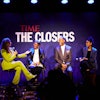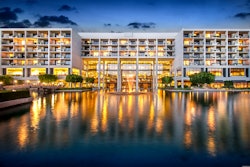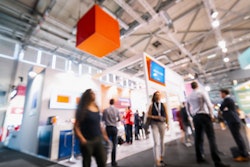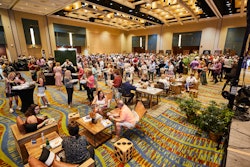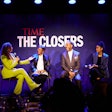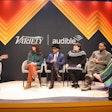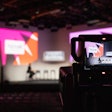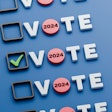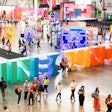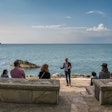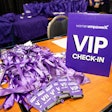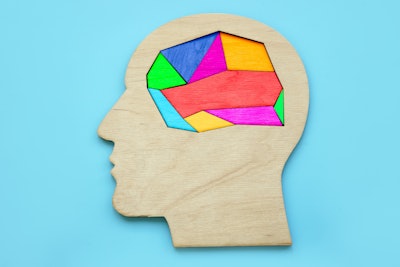
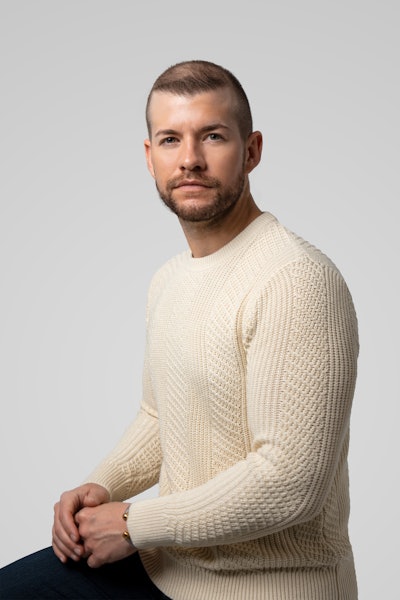 Photo: Courtesy of Devin Cleary
Photo: Courtesy of Devin Cleary
Examples of neurodivergent conditions include autism spectrum disorder (ASD), attention-deficit disorder (ADD), attention-deficit hyperactivity disorder (ADHD), dyslexia, pathological demand avoidance (PDA), and Tourette syndrome.
Here are some effective ideas for making these attendees feel included across the entire event lifecycle.
Before the Event
Accommodation starts with registration. State directly on your registration forms that this event is safe for all neuro types, and prompt attendees on your form to reach out and notify staff how to best support them online or on site. Collect each registrant’s needs, preferences, and goals during registration via drop-down lists or in a post-sign-up survey. A tip: Send confirmation emails based on those preferences, e.g., one version that is more image-based, one with bulleted lists, text and line spacing adjusted to accommodate those who are dyslexic, etc.
Prepare your website. Have an accessibility section on your website, and use services like Vimeo to create instructional videos that provide tips on how to prepare for the event and what to expect. Build recommended agendas based on needs, session formats, etc. Break down all event elements (infographic if possible!) to allow attendees to prepare in advance.
Prep your stakeholders. Educate various stakeholders on how to accommodate different personality types and learning styles. Speakers, for example, should be encouraged to create a consolidated summary/takeaway slide. Encourage them to avoid flashing lights or unexpected sounds in their presentations, and to develop and use a slide design template that’s been optimized for readability.
For sponsors, advise them to let attendees approach them in an exhibit hall, and to provide a clear, one-line description of what their company does in each exhibit or program guide and via mobile app. For staff, lean into pre-event training so they understand what to do if someone is triggered and how to best support them. And for attendees, make sure there’s a clear code of conduct to ensure no one feels harassed or excluded.
During the Event
Offer accommodations during check-in. When possible, offer special badge pickup hours for those who need it (perhaps an hour before or an hour after prime time). Another idea? Create a “sensory inclusion bag” with items like a fidget toy, noise-canceling headphones, and a visual wayfinding guide with landmarks as opposed to room numbers.
It can also be a good idea to implement bands or colored name tag stickers that demonstrate an attendee's willingness to engage—red for “don’t approach” and green for “open to networking”—while explaining the reason behind such measures.
Think through different learning styles when designing sessions. There are a lot of ways to be more inclusive during panels and education sessions. For dyslexic attendees, for example, consider whether free apps and software like NaturalReader can help attendees who need visual or auditory text. Another idea is to provide a dedicated room where attendees can consume content outside the larger general session. In workshops and demos, give attendees opportunities to touch things and interact directly with products or content.
Something that can be really useful for attendees with sensory-processing issues is a session tagging system for the event’s agenda. Use it to address questions like: Will there be sounds during this presentation? How are you expected to pay attention and interact? Will there be experiential elements during the presentation?
Offer quiet spaces within your venue. Provide environments where those prone to sensory overstimulation can rest all of their senses—ideally enjoying quietness, dim lighting, ample personal space, and no strong smells. Be intentional about offering longer breaks so people can walk away, unplug, and recharge. You can even take it a step further by offering neurodiverse attendees the option to get priority access to refreshments and meals, giving them more time to be away from the crowd during breaks.
Prioritize clear wayfinding instructions. Many people with neurodivergent conditions need and thrive on repetition, predictability, and clear boundaries to feel safe and in control. For virtual events in particular, make sure to provide clear instructions on how to navigate your event platform. Include things like an FAQ page and chatbot, and give clear descriptions of each session type to set attendee expectations in advance. Consider creating an “always on” virtual support room where attendees can ask questions or receive an overview of the virtual platform’s capabilities or offerings.
After the Event
Assess what went right and wrong. Post-event, create an event retrospective where you summarize the steps your team took to be more inclusive. This can double as a takeaway for attendees, with helpful summaries or tips from top sessions, trends discussed during various networking events, and more. It’s another resource to ensure people can consume content in a format and style that works for them.
To take it a step further, follow up with anyone who identified as neurodivergent to ask what worked and what didn’t, and encourage phone calls or email responses.
Devin Cleary is the head of global events for Vimeo. He has over 18 years of experience leading the creation and active management of experiential marketing programs for B2B, nonprofit, and consumer markets. Before Vimeo, he served as vice president of global events for event tech company Bizzabo; he has also run events and experiential campaigns for Workhuman, PTC, HubSpot, and the American Red Cross. Cleary, who was named to BizBash and Connect’s 40 Under 40 list in 2021, is based in Boston.



